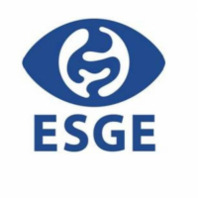colonoscopy
Colonoscopy
Colonoscopy is a diagnostic and therapeutic method that allows accurate watching of colon mucosa, evaluating visual changes, taking a specimens for histopathological examination and removing of small pathological structures (e.g. polyps). To perform the colonoscopy is used a special type of endoscope called ‘colonoscope’ (this is a thin, flexible instrument with a camera that sends images to a monitor). The patient should be gear up for colonoscopy: 1-2 days before the planned procedure the patient starts a liquid diet with taking laxatives (e.g. phosphates). Purifying enema should be performed shortly before colonoscopy. The examination is unpleasant and painful - it is recommended to perform it with anesthesia (general or sedation). Time of the procedure is varied - the more difficult cases may exceed half an hour.
Types
We can distinguish a few types of the colonoscopy based on a range of procedure: anoscopy (examination of the anal and final rectum) , rectoscopy (rectal examination), rectoromanoscopy (examination of the distal part of the sigmoid colon), sigmoidoscopy (distal part of colon and sigmoid), rectosigmoidoscopy (end of the rectum and sigmoid colon) and colonoscopy (examination of complete colon).
Indications
The indication to perform a colonoscopy can be classified into two groups:
1. Therapeutic (small endoscopic procedures): polypectomy, preventing bleeding from abnormal structures (tumors, ulcers, vascular malformations), pulling foreign bodies out, stenoses dilatation, decompression of the worsening ulcerative colitis (megacolon toxicum).
2. Diagnostic (medical indication or screening): suspected of: colorectal cancer, ulcerative colitis, Crohn's disease, inflammatory bowel disease, absorption disorders; diarrhea of unknown origin, gastrointestinal bleeding suspicion (anemia), weight loss and screening of the population (early-stage colorectal cancer).
Contraindications
Peritonitis (abdominal tension and painful abdominal palpation), pregnancy (second and third trimester), coagulation disorders, severe heart disease (heart failure in advanced stage, unstable coronary artery disease), severe pulmonary disease, acute respiratory failure, worsening inflammatory bowel disease.
Complications
(less than 1%): perforation of the gastrointestinal tract and severe bleeding.
European Colonoscopy Masterclass
The course was created with the aim of presenting the most recent clinical and technological innovations in the field of endoscopic colorectal pathologies. The...
Clinical Congress 2018
Postgraduate Courses The American College of Surgeons (ACS) will be offering Didactic Experiential Courses (DC) and Surgical Skills Courses (SC) at Clinical Congress...
33rd GEEW - Gastroenterology and Endotherapy European...
The 33rd GEEW (Gastroenterology and Endotherapy European Workshop) will be held in Brussels Expo (Auditorium 2000) from Monday, June 15 to Wednesday, June 17, 2015....
21st United European Gastroenterology Week
In Berlin we will continue to expand our original research innovations and increase our efforts to make the meeting even more lively and interactive. Among the...



